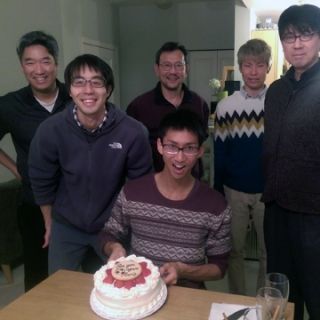
Seeking in Seattle
The United States and Canada have welcomed more than 50 million immigrants, many of them from countries where Western missionaries cannot live. In response to this great opportunity, SEND has launched a new outreach: Diaspora | North America. In the coming months, we will introduce you to our workers in several cities, all reaching out to diaspora peoples in diverse ways that reflect the complexities of each group’s culture. Today, we interview RKN, who ministers to the Japanese diaspora in the Seattle area.
1. Can you describe how God drew you to this ministry?
I first heard of diaspora ministries from missionary friends who went to the Lausanne Conference 2010. When I moved from Japan back to the States in 2011, I considered doing a diaspora ministry in Seattle.
2. What are some of the biggest challenges that the people you serve face?
Becoming a Christian for a Japanese is a huge challenge culturally. Less than 0.5% of the population is Christian. To do something outside of the group is very difficult. It can mean being rejected by family and friends. Japan is a land of “8 million gods.” To say there is only ONE true God is hard for the Japanese to grasp. Ultimately, the spiritual dark powers are strong in Japan.
3. How do you connect with the people you are trying to reach?
Mainly through relationships. Friends will introduce them to us. Events such as conferences or camps are other avenues to meet. “Cold turkey” evangelism is difficult for the Japanese. Passing out tracts has not worked well. We build relationships mostly through hospitality, inviting them to events, going out — especially for Japanese food.
4. Can you describe a “typical” week?
I try to set up meetings with at least three individual people during the week. Then there are group meetings in between. I’ve also been getting together with the local Japanese pastors and other missionaries with similar burdens. I’m working with several churches and trying to network better in order to cooperate and share spiritual gifts and resources. In between these meetings, there are the sermons and Bible study preparations to be made.
5. What are the biggest joys you’ve seen on the field?
Seeing someone receive Christ brings no greater joy. Seeing Christians come alive in their faith also brings a lot of joy.
6. What are some of the challenges?
Our main contacts usually are here for just one to five years. Japanese often take a long time to become Christians, so if headway does happen, they often have to return back to Japan.
7. What are some effective ways to share the gospel with people in your diaspora group?
Surround the person with many Christians. Have them hear testimonies from many people, but don’t push.
8. Why do you think diaspora ministry is valuable?
Japan is a very oppressive nation spiritually. Getting the Japanese outside of that darkness is a great opportunity to bring the light in. There is less pressure overseas. It’s safer to examine other belief systems outside of Japan. Being overseas helps the Japanese see the world in a broader context.
9. What would you like readers to understand about your diaspora group?
Time is limited to bring Japanese Christians up to maturity. Before they return to Japan, our hope is (ideally), not only can they be saved, but grow in maturity to the point of studying the Bible on their own, applying it to their lives, reproducing their faith, and leading others toward salvation and maturity. If we can send them back to Japan as missionaries, that would be great. They already know the language and culture, and they already have a network of relationships, people to whom they can witness.
10. What are some practical ways that people can help you in this ministry?
Pray, pray, pray. Over 150 years of Protestant missionary work, and we are still at less than 0.5%. There is a spiritual dark reality that is still strong in Japan. People have literally been dedicated to demons, so they are working hard to blind the minds of the Japanese. Also, the Diaspora | North America ministries are just now starting as an independent field for SEND. Therefore, there is much need for finances to build a solid foundation.
You might also be interested in
Resources — Find videos, statistics and tools for connecting with diaspora people at SEND's new Diaspora | North America home page.
'What is Diaspora Ministry?' — Hear a discussion about what diaspora ministry entails on the Global Missions Podcast.
Reaching UPGs in NYC — Within this diverse city live enclaves representing more than 50 groups that have little to no access to the gospel.
Inviting the nations to our tables — Game nights, endless cups of tea mean lots of opportunities to build relationships with Muslim refugees.
Who is my New Neighbor — A visual look at how communities are shifting, with ideas for getting involved.
Additional Posts




